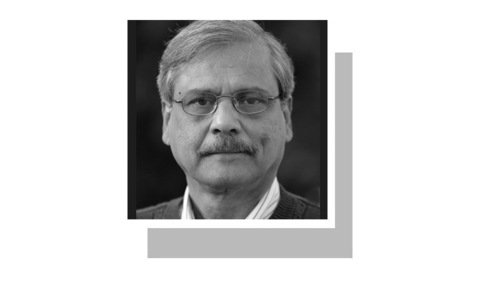
BEIRUT: Lebanese voters cast ballots on Sunday in their first general elections in nine years — an event seen as important for economic stability but unlikely to upset the overall balance of power.
The Iranian-backed Hezbollah group and its allies are expected to do well in the election, while Prime Minister Saad al-Hariri’s Future Movement party is expected to struggle to keep all its seats. However, he is seen as likely to be nominated to another term.
Party flags flew from cars and mopeds, loudspeakers blared campaign songs and young people wore T-shirts bearing the faces of political leaders.
But after polling booths closed at 7pm to all voters except those already waiting inside, turnout appeared to have been relatively low.
The Interior Ministry said less than a quarter of people had taken part by 2pm and President Michel Aoun appeared on television later in the afternoon to urge people to vote.
Television broadcast footage of people in Beirut throwing rocks and fighting in one district after reports of scuffles and accusations of candidate intimidation elsewhere. However, foreign monitors said their evaluation was generally positive.
The vote was held under a new proportional system that has confused some voters and made the contest more unpredictable. But it still preserves a sectarian power-sharing system and another coalition government including most of the major parties, like the one that has governed since 2016, looks likely, analysts say. Investors are keen to see a government in place quickly as a guarantee of economic stability. Lebanon has one of the world’s highest debt-to-GDP ratios and the International Monetary Fund has said its fiscal trajectory is unsustainable.
“We hope we will open a new era,” said Mahmoud Daouk, voting in Beirut. But other voters were more sceptical.
“The situation is actually worse now, not better... we lost the chance to hold them accountable nine years ago,” said Fatima Kibbi, 33, a pharmacist.
Mohammed Merhi, 30, said he would not vote. “Nothing will change. It is the same people with different names. If one is not running, his son or his grandson or even his brother is.”
Analysts are closely watching the performance of Hariri’s Future Movement party and that of the Hezbollah group and its allies.
Iran and Saudi Arabia have often battled for influence in Lebanon as part of their regional rivalry. But in recent years, Riyadh has cut support for Hariri, backing that helped his party in 2009 as part of the March 14 coalition, which focused on making Hezbollah give up its arms.
That issue has been quietly shelved as the main parties focus on getting the economy back on track and grappling with the Syrian refugee crisis.
Donors pledged $11 billion in soft loans for a capital investment programme last month, in return for fiscal and other reforms, and they hope to hold the first follow-up meeting with the new government in the coming weeks.
Debt ratings agencies had stressed the importance of Lebanon going ahead with the election after parliament had extended its term several times.
After the last election in 2009, the onset of Syria’s civil war, the arrival of over a million refugees and a series of militant attacks aggravated internal political rifts.
Rival blocs in parliament could not agree on a new president between 2014 and 2016 and repeatedly decided to delay elections, partly because of disagreement over moving from a winner-takes-all system to a proportional one.
The new rules are seen as unlikely to undermine the long-entrenched political elite, a group that includes local dynasties and former warlords.
In municipal elections two years ago, independent candidates did well against established parties by drawing on public anger at poor government services, including a garbage crisis.
Parliament seats are divided evenly between Muslims and Christians, and further subdivided among their various sects. Lebanon’s president must always be a Maronite Christian, the prime minister Sunni Muslim and the parliament speaker Shia.
Published in Dawn, May 7th, 2018













































